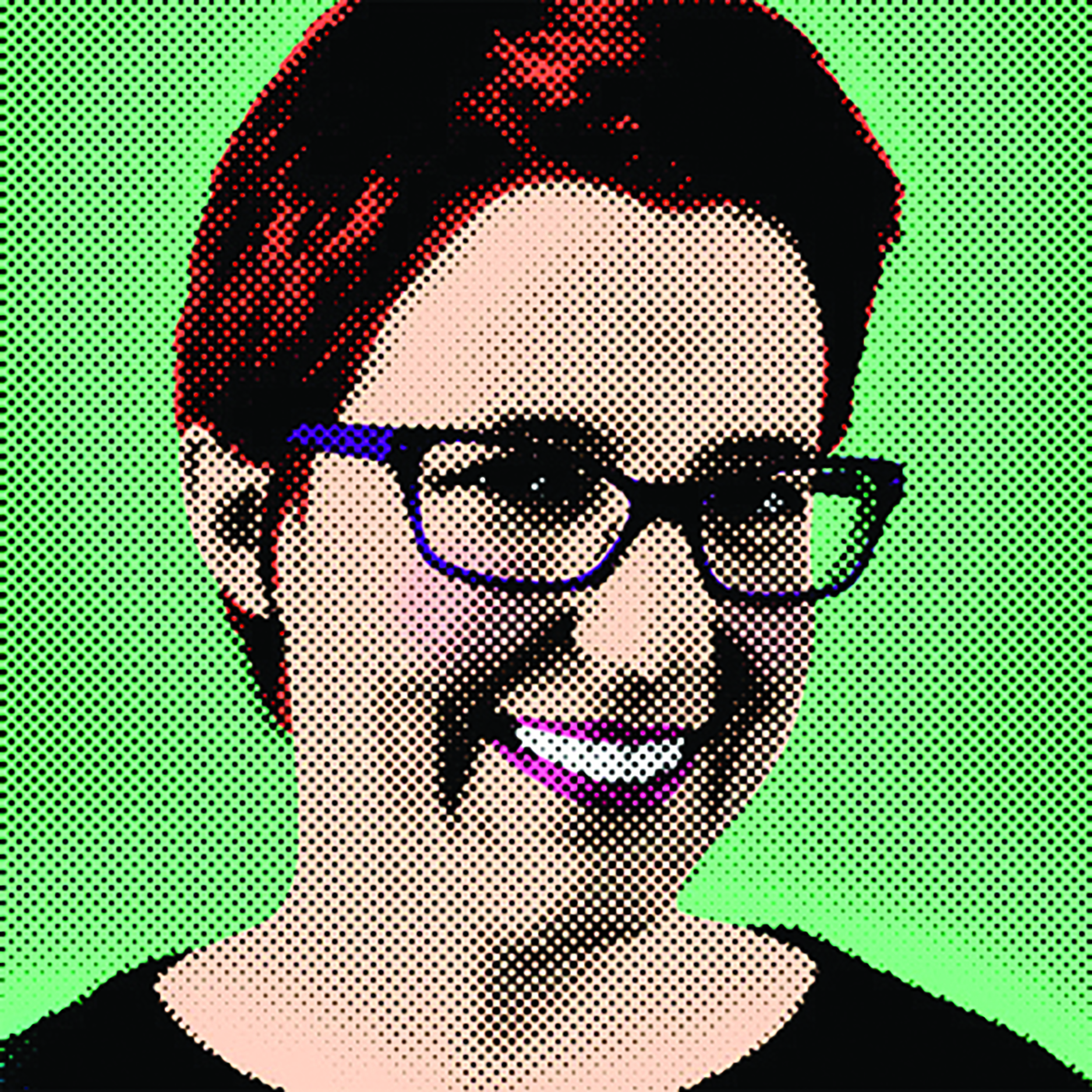On a Sunday night in Los Angeles, the audience at Tao Comedy Studio, a quaint, New Age-y performance space four blocks south of swanky Melrose Avenue, snaps to attention. An Asian woman wearing a knee-length black dress and red sweater has taken the stage beneath a hanging yin-yang charm; she removes the microphone and places its stand behind her. “My name is Robin Tran. I’m transgender, and that’s a coincidence. A lot of people think I transitioned for one pun. Can you believe that?” She lands her set’s first laugh.
Tran’s material—ranging from her appearance as a transgender woman to grocery shopping—is memorable, as was the opening act: Tran was preceded by her girlfriend, Cate Gary, a redhead with a stark, cropped haircut who joked about religious-fanatic groups that think transgender people are making their identities up. (“Seems like a dangerous road for religious people to choose.”) After both Gary and Tran finish their individual sets, an assistant places a second microphone stand on the stage and they begin a side-by-side routine that tells an untraditional love story.
Their duo act, “Unconventional Lesbians,” which Tran and Gary have performed at 90-minute shows like this one since October of 2015, starts with an anecdote about how they met. Tran first encountered Gary at an open mic in April of 2012, before she came out as transgender. When they began seeing each other at stand-up events around Orange County, they flirted, but only onstage. Six months into their acquaintance Tran asked Gary out. Gary was reluctant at first, mentioning she’s “very damaged” and a “life-ruiner.”
Gary adjusts the microphone as she describes dating Robert—Robin’s birth name. Tran struggled to feel like the man in the relationship. She headed to the gym to make herself look and feel bigger than Gary; she often asked, “Am I man enough for you?” At home, their relationship was sometimes tense, Gary says. “I asked her, do you love me as much as you hate yourself?” Gary shakes her head no, giving the audience Tran’s answer.
The scales were tipped when Robin came out in 2015, two years into their relationship. How she relayed that insight to her girlfriend forms the vignette’s punch line: “Like how any good boyfriend comes out to her girlfriend, I Facebook messaged her.”
“No more work got done that day,” Gary retorts, her voice getting a notch louder than Tran’s.
The show ultimately has a happy ending: Gary and Tran decided to stay together, and they began performing “Unconventional Lesbians” eight months after Tran officially came out to Gary. Most friends responded well to both of their life-altering decisions. After the show, Gary says, “We could finally be ourselves too.”
Onstage, however, being themselves means jockeying for attention at a moment when cisgender men are still the main commercial players in stand-up. Though transgender comedians like Julia Scotti and Ian Harvie have become name brands in recent years, in the first eight months of 2016, of 58 comedians who performed stand-up sets on late-night television, only 16 were women. As of this past October, only one trans man, Ian Harvie, had received a green light to film a stand-up comedy special. “When I first walk up on stage, most people are taken aback,” Tran says. “Everyone stops talking. I would say they are confused and amused at the same time.”

(Illustration: Elias Stein)
Still, Tran views being a non-conformist in comedy as an asset: “I get some chuckling before I even say something. Standards are low, which makes it easy to overcome them.” Gary acknowledges that the crowd also helps to make “Unconventional Lesbians” a success. She says that most attendees learn about them on Facebook ahead of time, and so they don’t often face preconceived, broad judgments about transgender people like they might in front of a standard comedy audience.
But the performance seems to erode discomfort from the room as well. When Gary tells the audience at Tao, “We’re a very offensive couple—our existence offends people,” she enunciates every word for extra emphasis, eliciting the night’s loudest laughs. Gary is using a time-tested joke-writing strategy: Laugh at yourself in a truthful way, and the audience feels that it has permission to laugh along with you. With that, Tran thanks everyone for coming, and she and Gary place the microphones back into their stands. As any good comedian knows, you end the show when you get a big last laugh.





